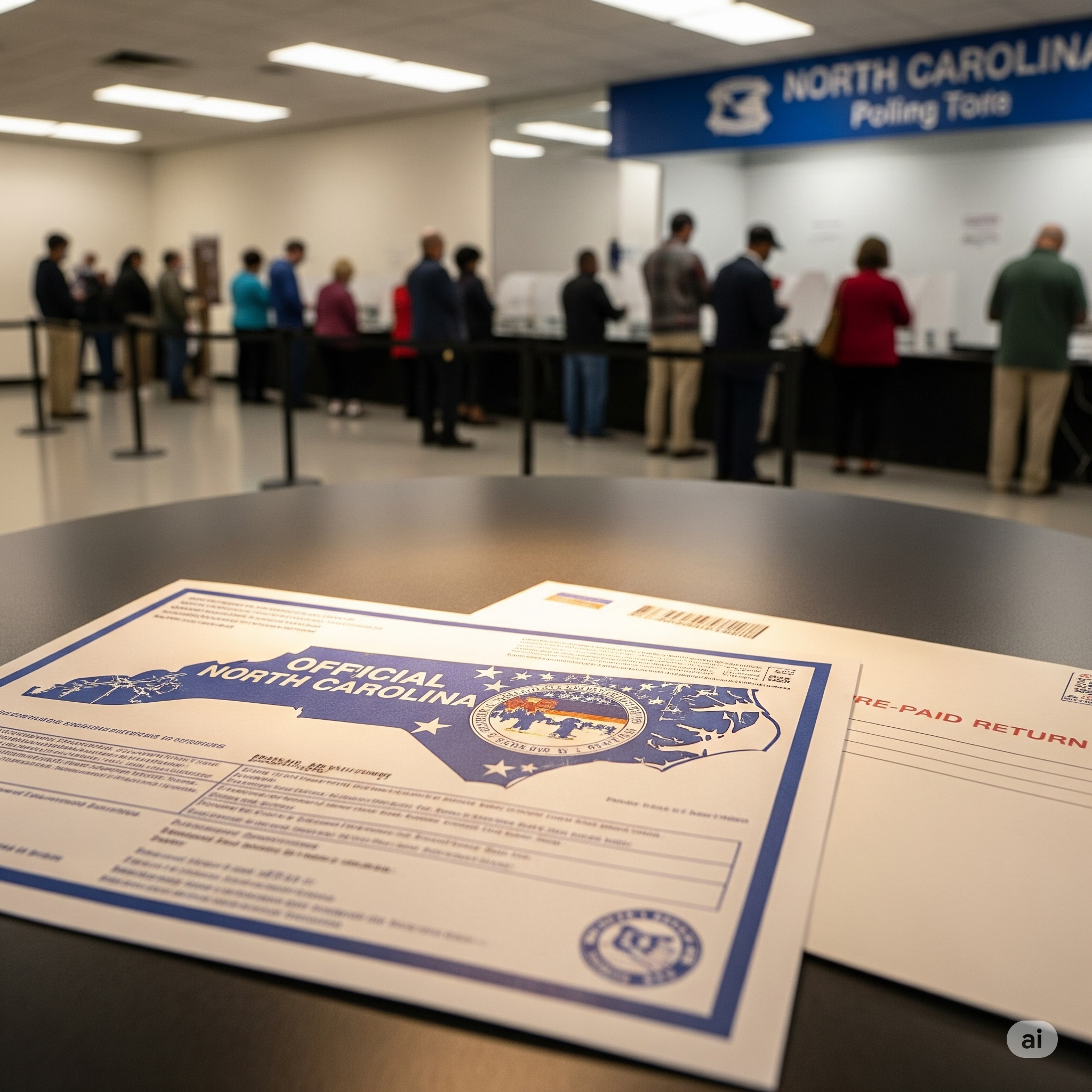
NC Mailers Could Impact Your Ballot – What 200,000 Voters Need to Know Now
North Carolina -- A significant shift in North Carolina's election oversight, coupled with a new voter outreach initiative, means that approximately 200,000 registered voters could face unexpected hurdles in having their ballots counted in upcoming elections.
It is crucial for residents to be aware of these changes and understand their direct impact.
Behind the Scenes: A Power Shift
Recent legislative action, notably Senate Bill 382, has fundamentally reshaped who controls North Carolina's election administration. Historically, the governor held the power to appoint most members of state and county election boards. However, this authority has now been transferred to the state auditor, resulting in a new 3-2 Republican majority on the North Carolina State Board of Elections (NCSBE). This change, implemented amidst legal challenges, has given the party now in control the ability to significantly influence election policies and priorities.
The Immediate Impact: Mailers and Provisional Ballots
The newly composed NCSBE has unanimously approved a plan to contact roughly 200,000 voters. This initiative stems from a U.S. Justice Department lawsuit alleging that North Carolina has not fully complied with the federal Help America Vote Act (HAVA) by lacking complete identifying information for many voter registrations.
This is where direct voter action becomes essential:
You may receive mailers: The NCSBE will be sending official mailers to voters whose registration records are missing either a driver's license number or the last four digits of their Social Security number. These mailers will request this missing information and provide a simple way to return it.
A critical distinction for nearly 100,000 voters:
For approximately 98,000 voters who registered after HAVA's 2004 implementation and still lack this information, failure to provide it before voting could mean casting a provisional ballot.
A provisional ballot is not automatically counted. For your vote to count, you would then be required to submit the missing identification number to your county board of elections by a deadline shortly after Election Day. If this crucial follow-up step is missed, your vote for that election will not be counted.
For the other 97,000 voters: If your record is missing this data due to a past administrative or data entry error, you will also receive mailers but will still be able to cast a regular ballot even if you don't respond. However, completing the form will help ensure your voter record is accurate.
Why Voters Must Be Aware
Many of these 200,000 voters have likely cast regular ballots in multiple elections since 2004 without any issue, unaware their registration records were incomplete under federal law. This new process introduces an unexpected hurdle, potentially turning a routine vote into a provisional one that requires an additional, time-sensitive step to be counted.
It is imperative for all North Carolina residents to:
Watch their mail closely for official communications from the North Carolina State Board of Elections.
Understand that a request for missing information is not optional for some, and could directly impact their vote's validity.
Be prepared for the possibility of a provisional ballot if their record is flagged at the polls.
Familiarize themselves with the provisional ballot process, including deadlines for providing additional information, to ensure their vote counts.
This new electoral landscape places a significant responsibility on individual voters. Awareness and prompt action are key to navigating these changes and ensuring every eligible vote is counted.
WNCTimes
Image: Generated by WNCTimes


 How to resolve AdBlock issue?
How to resolve AdBlock issue? 